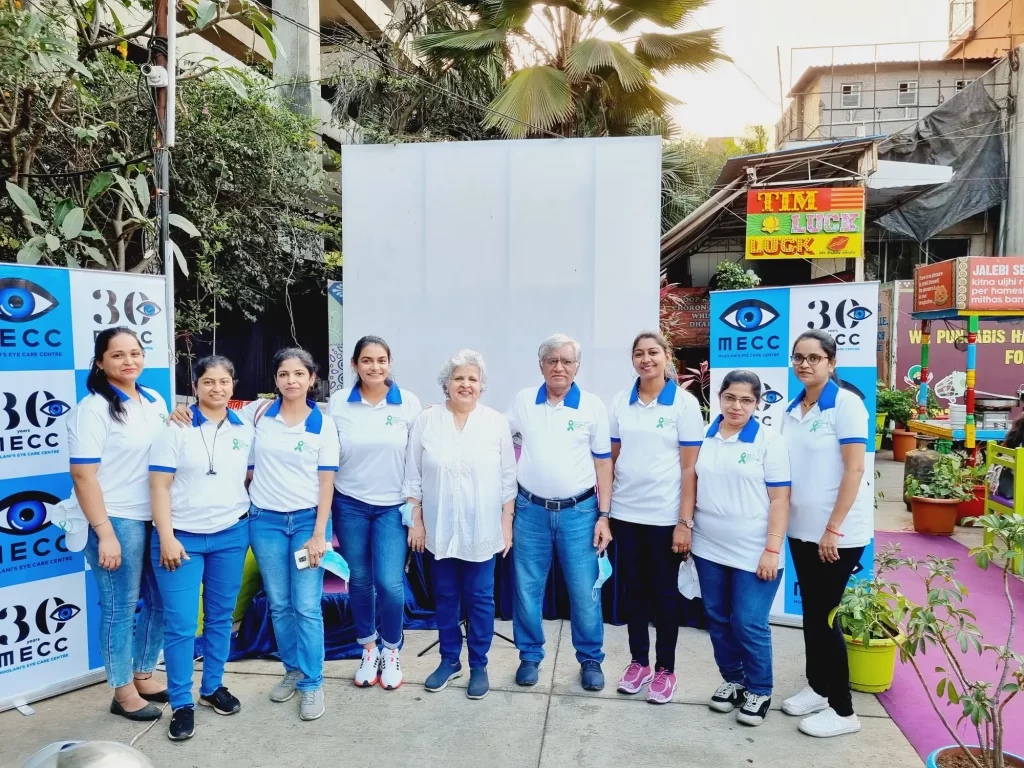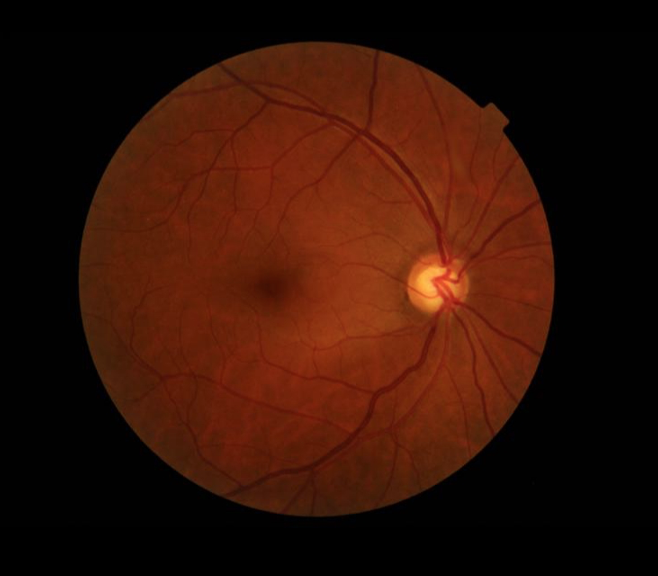World Glaucoma Week is celebrated globally every March.
It is an initiative to spread awareness about Glaucoma which is a potentially blinding disease if left undetected and untreated. In India, an estimated 12 million are affected and 1.2 million are blind due to glaucoma. It is estimated that 90 percent of cases of glaucoma in India are undiagnosed.
(Source: https://www.nhp.gov.in/)
What is Glaucoma?
Glaucoma known as ‘Kaanch Bindu’ in Marathi or ‘ Kaala motiya’ in Hindi, is a silent disease that affects the eyesight slowly and progressively over time. There are a few types of glaucoma: Open-angle which is the most common, narrow-angle which does present with symptoms, and congenital (at birth) glaucoma.
Glaucoma is caused by an increase of pressure in the eye leading to a loss of vision due to damage in the optic eye. Anyone can have glaucoma and there may be no tell-tale symptoms. This is why glaucoma is called the silent thief of sight. Though glaucoma is not curable, timely treatment can halt the progressive loss of vision. This means that the earlier it is detected, the less chance of vision loss.
Who is more prone to glaucoma?
Risk factors for glaucoma include a family history of glaucoma, age of more than 40 years, and being black, Asian, or Hispanic. Those individuals with a family history of glaucoma are more prone to develop this condition. People with underlying medical conditions such as diabetes, heart disease, and high blood pressure Those patients who have thin corneas are also prone to high eye pressure.
How can one know if they have glaucoma?
A routine eye test with a board-certified Ophthalmologist usually includes a pressure check as well as an optic nerve evaluation. In case there is any doubt, your doctor will suggest further glaucoma tests such as field testing/ perimetry, optical coherence tomography, corneal thickness, and gonioscopy among others.
These tests will help decide the management plan in case of glaucoma.
If someone has glaucoma will they go blind?
Untreated glaucoma leads to eventual blindness, however, if diagnosed and treated, vision loss can be controlled by using anti-glaucoma eye drops given daily. Sometimes patients who do not respond to eye drops may require glaucoma surgery.
If a patient has developed glaucoma, it is very important to undergo regular checks with your doctor to measure the eye pressure and evaluate the nerve. Eye drops are usually given for life and adjusted as per the eye pressure.
This is a lifelong disease that needs close monitoring to ensure that vision loss does not occur as any vision loss due to glaucoma is irreversible.
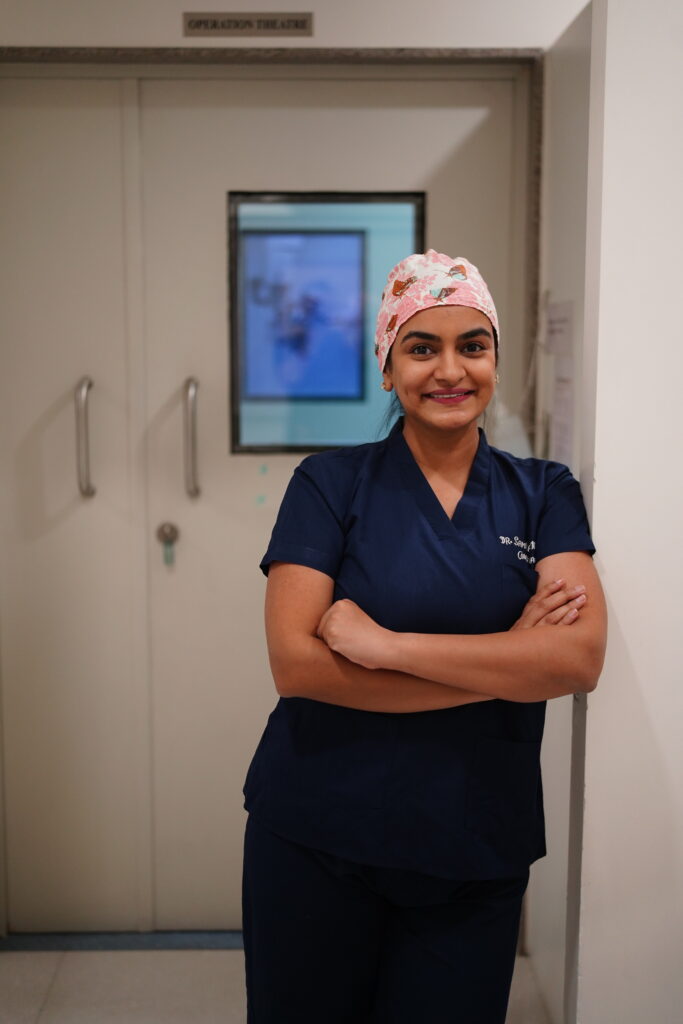
About Dr. Samita Moolani
MBBS DO DNB (Ophthalmology) FCAS (Mumbai)
Dr. Samita Moolani is a consultant and partner at Moolani’s Eye Care Centre.
She has trained in Mumbai and Singapore and specializes in Cornea and Anterior Segment surgery.
Dr. Samita has a keen interest in refractive surgery, dry eye disease, and also charitable work in Ophthalmology.
She is also an advocate of patient education and women’s empowerment.
She has worked as the Creative Coordinator of the Indian Journal of Ophthalmology. During her tenure, she was responsible for organizing conferences and workshops on Research Methodology and changing the face of the journal, making it more interactive and appealing to new-age ophthalmologists.
World Glaucoma Week 2022 is between March 6 to 12.
Every year Moolani’s Eye Care Centre conducts a free screening for glaucoma.
The screening was held on 13 March
A cycling awareness program was carried out on 12 March 2022 to raise awareness about Glaucoma.
A photo of the back of the eye showing the retina and optic nerve with the retinal blood vessels. The yellow sun-like circle is the optic nerve that shows signs of glaucoma.
Optical coherence tomography (OCT) to analyze the optic nerve, and detect any nerve fiber damage using advanced technology.
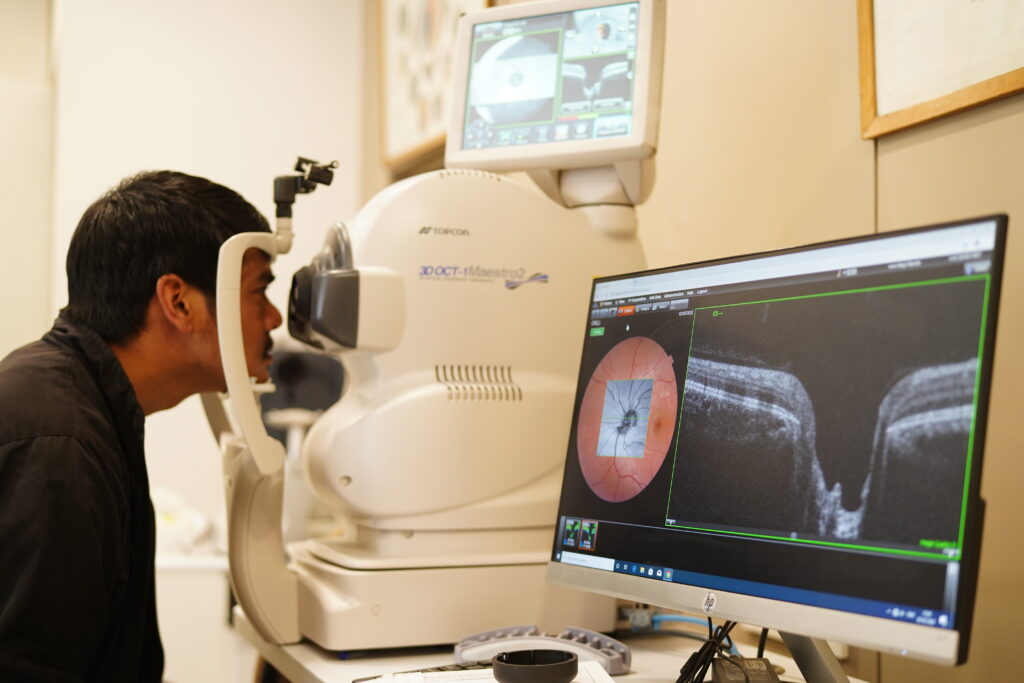
Field testing in glaucoma patients is important to detect early changes in the vision, the first vision lost in glaucoma is from the outside of the vision field. This is why patients do not realize that they have glaucoma until it is in the advanced stage as the central vision is the last to go. At this point, vision cannot be brought back.
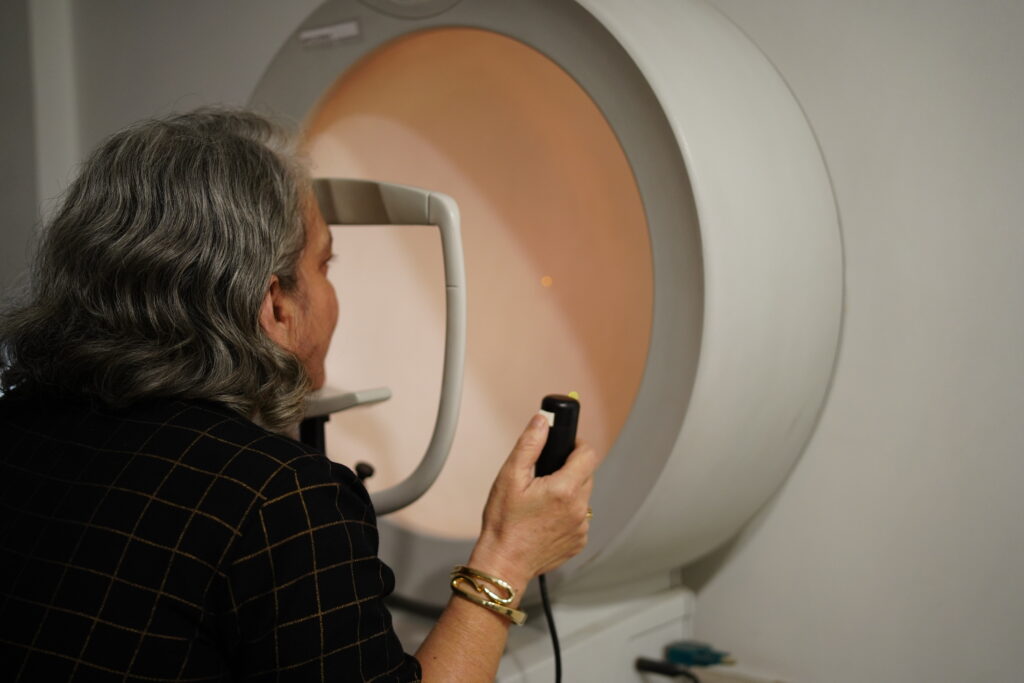
Dr. Ashok Moolani examines the retina and Optic nerve in a patient to rule out glaucoma and other retina diseases.

Yearly glaucoma cycling program to raise awareness for glaucoma, which is followed by a free eye screening program.
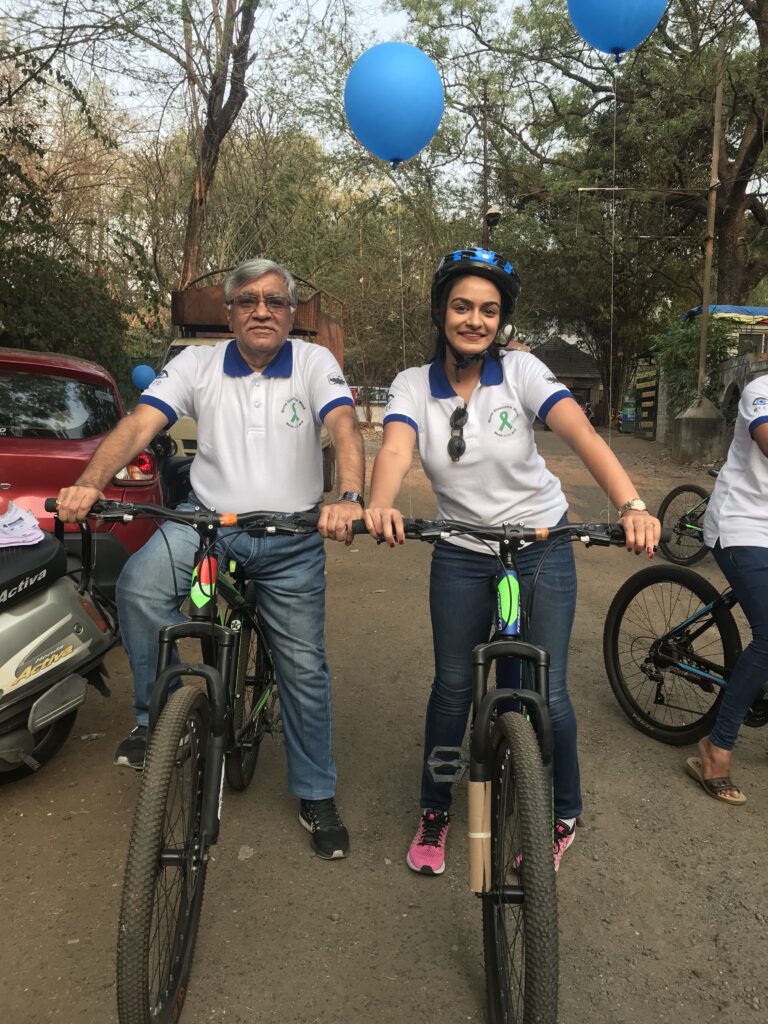
A cycling rally was organized to raise awareness of glaucoma. 55 cycles and over 100 people on cycles and bikes went around camp to raise awareness and distribute brochures and materials to educate the public.
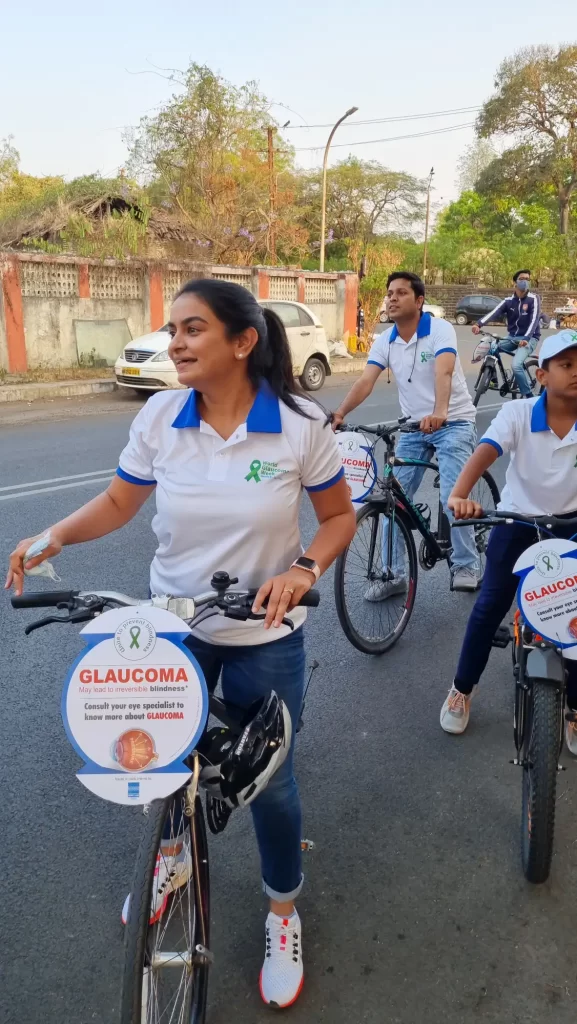
Legend for photographs:
The team of Moolani’s eye care center at the World glaucoma awareness week program 2022.
